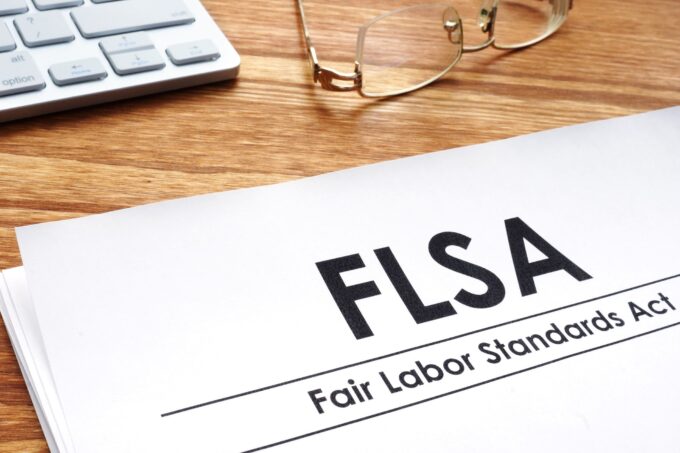Imagine finding the courage to speak up against Fair Labor Standards Act (FLSA) violations committed by your employer, only for them to retaliate against you by firing you or giving you less hours. It can be an extremely challenging situation to navigate. Understanding your rights and knowing how to protect yourself is crucial in such circumstances.
The Fair Labor Standards Act (FLSA) is a federal law that sets standards for minimum wage, overtime pay, and other labor practices in the United States. The FLSA is designed to protect employees’ rights and to give fair treatment in the workplace, despite speaking out. Unfortunately, some employers violate the FLSA, resulting in wage theft, unpaid overtime, and even retaliation.
Recognizing FLSA Violations

Before addressing employer retaliation, it is important to be able to recognize FLSA violations. Inform yourself with the provisions of the FLSA and the rights it gives you as an employee. According to Scott & Winters Law Firm, LLC, some of the more common types of violations include misclassification of employees, failure to pay all hours worked, and retaliating against employees..
Understanding these violations is critical. Misclassification, for instance, occurs when workers are incorrectly labeled as ‘exempt’ from overtime, denying them rightful pay. This is often seen with ‘salaried’ employees who should be eligible for overtime. Failure to pay for all hours worked is another violation. This includes not compensating for tasks performed before or after shifts or during breaks. Lastly, retaliation, such as demotion or termination for reporting FLSA violations, is illegal. Recognizing these actions in your workplace is the first step in asserting your rights.
Be aware of the warning signs of FLSA violations in your workplace. These signs can include being paid less than the minimum wage, not being paid overtime when working more than 40 hours per week, or having your breaks or meal periods unjustly deducted from your pay.
Documenting and Reporting FLSA Violations
If you suspect FLSA violations in your workplace, it is important to gather evidence and document any instances of non-compliance. Keep a record of your work hours, including any overtime worked, as well as any communication or agreements related to your wages.
Report these violations to an employment-related administration, like the Wage and Hour Division of the U.S. Department of Labor. They have the resources to investigate potential violations and enforce compliance with the FLSA.
Dealing with Employer Retaliation

Unfortunately, employer retaliation is a common response when employees report FLSA violations. Retaliation can take various forms, such as demotion, pay cuts, reduced hours, or even termination. If you are facing retaliation from your employer, stay calm and take strategic steps to protect your rights.
Firstly, document any instances of retaliation that occur. Keep a record of dates, times, and descriptions of the actions taken against you. This documentation will be valuable evidence if you decide to pursue legal action.
Next, seek support from trusted colleagues, friends, or family members who can provide emotional and practical assistance during this challenging time. Their guidance and understanding can be crucial in maintaining your resilience.
To navigate the complex landscape of FLSA violations and employer retaliation, it is advisable to consult with an expert who can provide guidance on your rights as an employee and help you understand the legal options available to you. They can evaluate your case and advise you on the best course of action, whether it’s negotiating with your employer, filing a complaint, or pursuing legal action.
Filing a Complaint or Lawsuit

When facing employer retaliation, you have options for seeking justice. One option is to file a complaint with the Wage and Hour Division of the Department of Labor. They will investigate your case and take appropriate action to address the retaliation and ensure compliance with the FLSA.
Alternatively, you could pursue legal action by filing a lawsuit against your employer. An employment attorney can guide you through the process, gather evidence, build a strong case, and navigate the legal system.
The potential outcomes of filing a complaint or lawsuit include financial compensation for damages, reinstatement to your previous position, or a favorable settlement. However, each case is different, and the results will depend on the circumstances and the strength of the evidence you build.
Understanding the Process

It’s important to have a basic understanding of the legal process involved in addressing FLSA violations and employer retaliation. Typically, the process begins with gathering evidence and building a solid case.
Gathering Relevant Evidence
To strengthen your case against employer retaliation for reporting FLSA violations, it’s important to gather relevant evidence. Consider collecting the following types of evidence:
Documentation of violations: Keep records of pay stubs, timecards, work schedules, or employment contracts that demonstrate the FLSA violations.
- Communication records: Preserve emails, text messages, or internal memos related to the violations and your reporting of them.
- Witness statements: Seek written or signed statements from colleagues who witnessed the violations or can support your claims.
- Performance evaluations: Look for negative changes in evaluations or comments after reporting the violations.
- Documentation of retaliation: Keep a detailed record of any retaliatory actions taken against you, noting dates, times, and descriptions.
- Comparative evidence: Gather information on how other employees in similar positions are treated to highlight disparities.
Following the gathering of evidence, you or your attorney may attempt to negotiate a resolution with your employer. This can involve mediation or settlement discussions. If a resolution cannot be reached, the case may proceed to trial, where a judge or jury will evaluate the evidence and make a decision.
Protecting Yourself in the Future

While dealing with employer retaliation can be hard, taking steps to protect yourself in the future can help prevent similar situations from arising. Educate yourself about your rights as an employee, including the protections provided by the FLSA. Be proactive in addressing workplace issues by maintaining open lines of communication with your employer and seeking resolution before problems escalate.
If you witness FLSA violations but are not directly affected, consider reporting them to the appropriate authorities. By speaking up and supporting others, you contribute to a fair and ethical work environment.
When faced with employer retaliation for reporting FLSA violations, it’s essential to remember that you have rights and options. By recognizing FLSA violations, documenting instances of non-compliance, seeking legal assistance, and taking strategic steps to protect yourself, you can navigate this challenging situation with resilience. Remember, reporting violations not only helps you but also supports a fair and just workplace for all.









